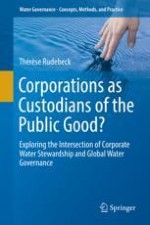2019 | OriginalPaper | Buchkapitel
6. Corporate Legitimacy in Collective Action
verfasst von : Thérèse Rudebeck
Erschienen in: Corporations as Custodians of the Public Good?
Aktivieren Sie unsere intelligente Suche, um passende Fachinhalte oder Patente zu finden.
Wählen Sie Textabschnitte aus um mit Künstlicher Intelligenz passenden Patente zu finden. powered by
Markieren Sie Textabschnitte, um KI-gestützt weitere passende Inhalte zu finden. powered by
